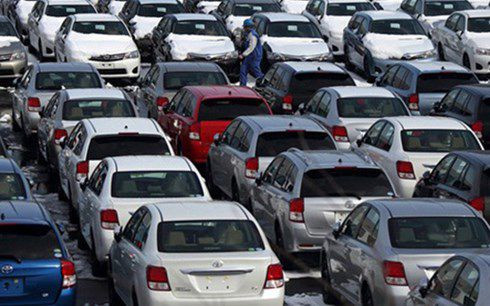Vietnam will gradually remove 70% of import tax on Japanese cars.
Most TPP member countries have reached consensus on the issue of tariff barriers on Japanese cars.
Vietnam and Canada are expected to agree to eliminate import tariffs on Japanese cars over the next 10 years, if the Trans-Pacific Partnership (TPP) agreements come into effect.
Trade ministers of the 12 member countries participating in TPP negotiations over the past two days in Atlanta have made new progress in the process of liberalizing the automobile market.
Over the next 10 years, Vietnam will gradually eliminate the 70% tax on Japanese cars with engines of 3 liters or more. In addition, Canada has also agreed to eliminate the 6.1% tax on Japanese cars in the next few years.
 |
| Vietnam will gradually remove the 70% tax on Japanese cars over the next 10 years. (Photo: Internet) |
Japan and the US are currently the two largest car exporting countries in the TPP bloc. The US has also agreed to immediately remove the 2.5% tax applied to 80% of auto parts imported from Japan. According to the commitment roadmap between the two sides, the tax on Japanese cars will be gradually removed within the next 30 years or longer.
Thus, Japanese automakers will have a wide path to enter two attractive markets: North America and Vietnam.
This bodes well for the Japanese auto industry. The market share of Japanese cars in Mexico immediately increased after the bilateral economic cooperation agreement took effect in 2005.
Besides, Japan is still actively negotiating regulations on how much of an auto component product needs to be produced in the TPP to qualify for tax exemption.
The new progress in the automobile sector is a positive signal that shows that it is very likely that the TPP will be passed when one of the biggest obstacles has been removed./.
According to VOV






